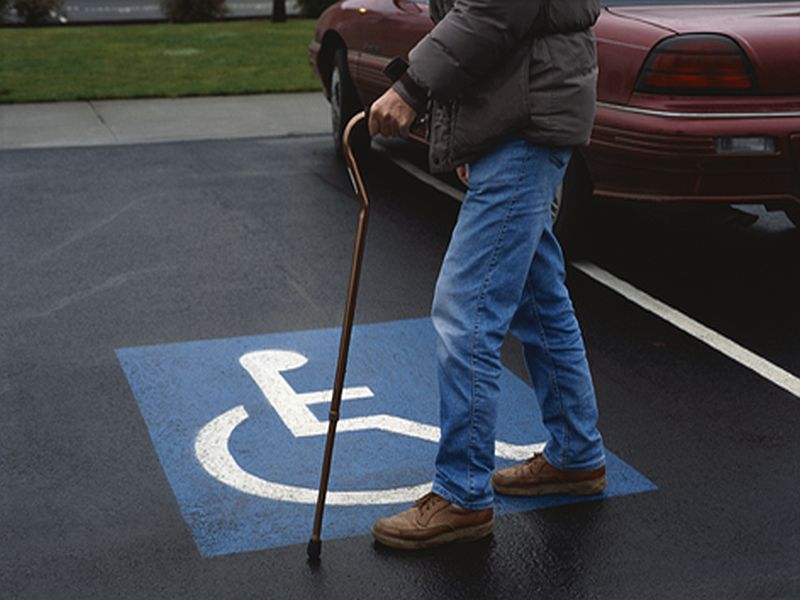WEDNESDAY, Nov. 29, 2017 (HealthDay News) — They may temporarily ease pain, but new research suggests that steroid injections to arthritic hips may exacerbate bone trouble over the longer term.
These injections have long been used “for diagnostic and therapeutic purposes for various joint conditions,” noted Dr. Crispin Ong, an orthopedic surgeon who was not involved with the study but reviewed the new findings.
However, “this study brings to light concern over the safety of hip steroid injections for osteoarthritis,” said Ong, who practices at Northwell Health’s Plainview Hospital in Plainview, N.Y.
The new study was led by Dr. Connie Chang, a radiologist at Massachusetts General Hospital in Boston. Her team tracked outcomes for three groups: 102 patients, ages 19 to 92, who received hip steroid injections; another group of 102 patients with hip arthritis who did not receive such injections; and a third group of 44 patients who received a steroid injection in the shoulder but not the hip.
Compared to the two control groups, the patients who received steroid hip injections had higher rates of bone “death and collapse” three to nine months later, Chang’s team said.
New occurrences of bone death were seen in 22 to 24 percent of hip injection patients; 5 to 9 percent of patients in the group that had hip arthritis but got no injection; and 5 percent of patients in the shoulder injection group.
Bone collapse in the head of the femur bone occurred in 15 to 17 percent of hip injection patients; 4 percent of patients with hip arthritis but no injection; and 2 percent of the shoulder injection patients.
The findings were slated to be reported Wednesday at the annual meeting of the Radiological Society of North America, in Chicago.
“Changes due to osteoarthritis, such as narrowing in the space between joints and the development of bony proliferations, typically develop slowly over time,” Chang explained in a meeting news release.
However, looking over the X-rays of patients who’d gotten a steroid injection to the hip, “we noticed changes had developed rapidly in some patients” and decided to conduct this study, she explained.
“We need to look at what’s going on with the [steroid injection] and osteoarthritis patients to determine what’s causing the changes that occur in some patients,” Chang said. “However, we don’t want to deter patients from getting an injection. These results are enough to warrant an investigation, but not enough to cancel a procedure.”
Another radiologist also not part of the study said that given what doctors know about patient behaviors, the findings could make sense.
“It may seem counterintuitive, but one of the under-recognized ‘risks’ of steroid/anesthetic joint injection is that the patients often experience complete relief of pain,” explained Dr. Mark Raden. He directs radiology at Staten Island University Hospital in New York City.
“A patient feeling no pain may then go on to participate in strenuous physical activities that they could not perform prior to injection, ultimately worsening the degeneration of the joint,” Raden said, and “this may be one of the underlying reasons behind the conclusions in the study.”
He said that theory is bolstered by the fact that deterioration after steroid injections occurred only in the weight-bearing hips — not the shoulders.
And Raden believes that while steroid shots may offer short-term pain relief, they have their limits.
“Many patients report several months of pain relief with steroid/anesthetic injection, greatly improving their day-to-day living,” he said. “Although this pain relief is desired, it is important to remember that steroids/anesthetics are only a Band-Aid relieving the pain but not a cure for the underlying arthritis.”
For his part, Ong said that the study couldn’t prove cause-and-effect, and more research is needed.
“The evidence is still limited in this area and more research is required,” Ong said. “I think there is still a role for hip injections on a limited basis for therapeutic and diagnostic purposes.”
Also, because these findings were presented at a medical meeting, they should be considered preliminary until published in a peer-reviewed journal.
More information
The American Academy of Family Physicians has more on osteoarthritis.
Copyright © 2026 HealthDay. All rights reserved.

